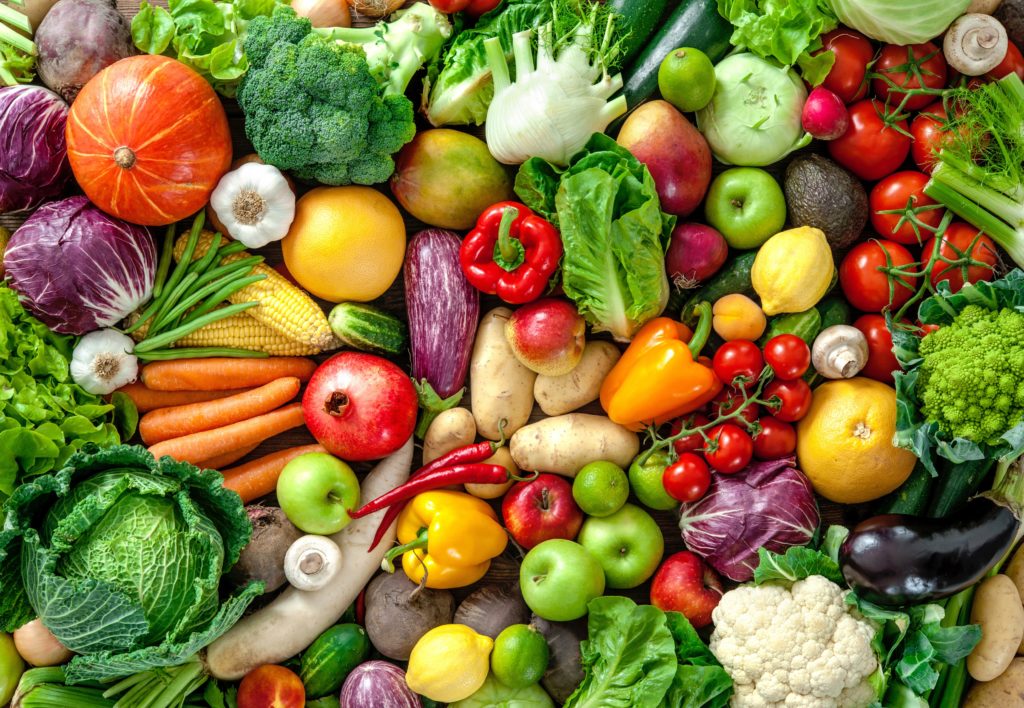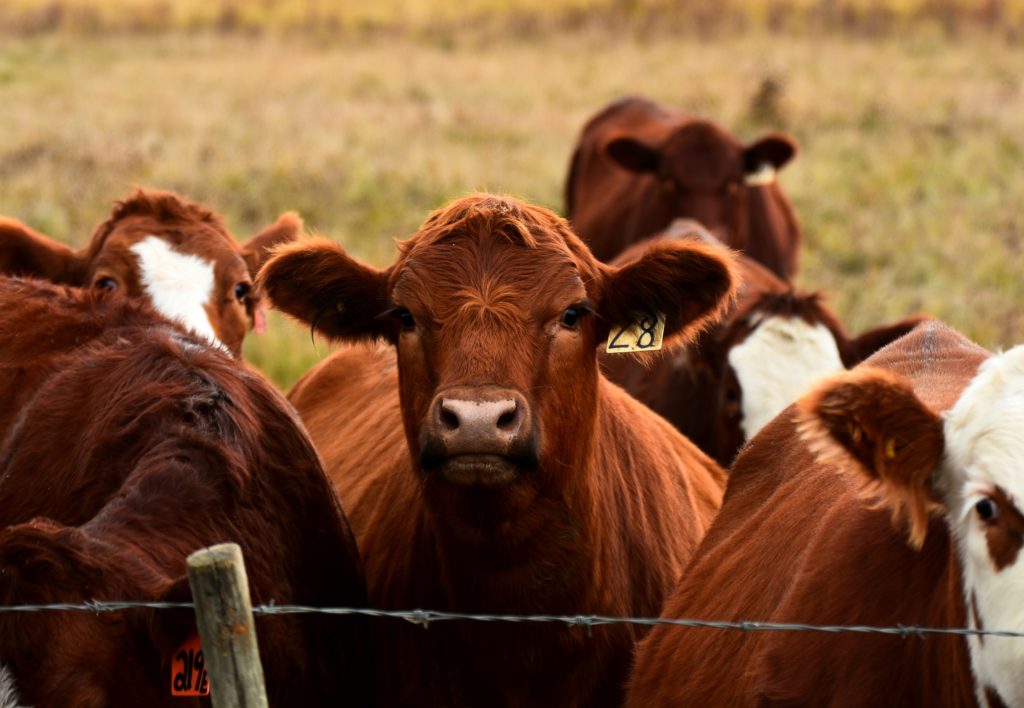FDA Compliance Guide
FDA Import Requirements
All products regulated by the Food and Drug Administration (FDA) must meet the same requirements, whether imported from abroad or produced domestically. The FDA determines whether products are admissible into U.S. commerce. FDA has jurisdiction over imported products at the time of entry but also after the products have entered domestic commerce. Read more…
Entry Review for FDA-Regulated Products
The FDA regulates a wide range of products, including foods, human and veterinary drugs, vaccines and other biological products, medical devices intended for human use, radiation-emitting electronic products, cosmetics, dietary supplements, and tobacco products. Each FDA-regulated commodity is subject to specific regulations, which you should be aware of when importing products into the United States. Read more…
Country of Production and Country of Origin
Food in Natural State: For food that is in its natural state, the FDA Country of Production is generally the country where the food was grown or collected, including harvested and readied for shipment to the U.S.
Food not in Natural State: For food that is no longer in its natural state, the FDA Country of Production is generally the country where the food was made or processed. However, if the article is made from wild fish aboard a vessel, the FDA Country of Production is the country in which the vessel is registered. Read more…
Personal Importation of FDA-Regulated Products
If you are entering the United States with FDA-regulated products in personal baggage or sending products by mail or courier from abroad, the FDA has guidance that governs personal importations. Personal importation is a product not for further sale or distribution into U.S. commerce. These products may be carried in baggage or shipped by courier or international mail. Read more…
In-Depth Coverage: Marketing and Advertising Compliance
- Federal Trade Commission (FTC) Advertising Rules
- Made in USA Standard
- FTC Regulation on Environmental Claims
- Adverting and Marketing on the Internet
- Label Claims for Conventional Foods and Dietary Supplements
- Dietary Supplement Advertising: What is FTC's Truth-in-Advertising Law?
- USDA Country of Origin Labeling (COOL)
- FTC Rules & Regulations on Food Advertisement
International Mail Facility (IMF) and FDA
Mail entering the U.S. from abroad arrives at a U.S. Postal Service (USPS) sorting facility (International Mail Facility, IMF). Upon initial screening at arrival, USPS sends packages to U.S. Customs and Border Protection (CBP) for examination. CBP then refers the FDA regulated products to the FDA's investigators for review. Read more…
Import for Export of FDA-Regulated Products
Import for Export (IFE) allows for the importation of a product that is unapproved or otherwise does not comply with FDA laws and regulations if it is coming into the U.S. for further processing and ultimately exported out of the U.S. Read more…
Foreign Trade Zone (FTZ) and FDA
Because FTZs are considered to be outside the Customs territory for the purpose of Customs duties and Customs entry procedures, the import provisions of the Federal Food, Drug, and Cosmetic (FD&C) Act are not applied to foreign products brought into the FTZ. This means that FDA does not determine the admissibility of products brought into the FTZ; rather, FDA will make an admissibility decision when products are withdrawn from the FTZ for consumption. Although FDA does not make an admissibility decision when products are brought into the FTZ, FDA does still have jurisdiction over those products. Read more…
In-Depth Coverage: Importing Food Products
- What is FDA Food Safety Modernization Act (FSMA)?
- Prior Notice of Imported Foods
- FDA Food Facility Registration
- What is a Preventive Controls Qualified Individual (PCQI)
- Risk-Based Preventive Controls for Human Food
- Risk-Based Preventive Control for Animal Food
- Protect Food against Intentional Adulteration
- What is Foreign Supplier Verification Program (FSVP)?
- What is FSMA Produce Safety Rule?
Food Safety Modernization Act (FSMA)
The FDA Food Safety Modernization Act (FSMA) enables FDA to focus more on preventing food safety problems rather than relying on reacting to problems after they occur. Read more…
Foreign Supplier Verification Program (FSVP)
Under the Foreign Supplier Verification Programs (FSVP) regulation, a U.S.-based importer is now required, among other things, to conduct a hazard analysis – an evaluation of risk of the food and foreign supplier – and to conduct verification activities based on the hazard analysis. Read more…
Preventive Control for Human Food
The preventive controls final rules require that a facility verify that hazards are being controlled and take corrective action to prevent contamination. Product testing and environmental monitoring are examples of steps that a company may take for the preventive controls. Read more…
Preventive Control for Animal Food
The Preventive Control for Animal Food (PCAF) rule applies to food for animals other than man. This includes, but is not limited to, companion (pet) animals, such as dogs, cats, and horses; and food-producing animals, such as cattle, pigs, and chickens. This also includes wild animals and minor species such as wild birds, deer, fish, hamsters, and honeybees. Read more…
Produce Safety
The Produce Safety Rule establishes mandatory science-based, minimum standards for the safe growing, harvesting, packing, and holding of fruits and vegetables grown for human consumption. These standards are designed to work effectively for food safety across the wide diversity of produce farms. Read more…
Protect Food against Intentional Adulteration
The Food Safety Modernization Act (FSMA) final rule “Mitigation Strategies to Protect Food Against Intentional Adulteration (IA rule)” is aimed at preventing intentional adulteration from acts intended to cause wide-scale harm to public health, including acts of terrorism targeting the food supply. Read more…
Understanding Food Import Regulations and Requirements
Under the Federal Food, Drug and Cosmetic (FD&C) Act, importers of food products into the U.S. are responsible for ensuring that the products are safe, sanitary, and labeled according to U.S. requirements. Read more…
Food Facility Registration
The Public Health Security and Bioterrorism Preparedness and Response Act of 2002 (the Bioterrorism Act) requires domestic and foreign facilities that manufacture, process, pack or hold food for human or animal consumption in the United States to register with the Food and Drug Administration (FDA). Read more…
Prior Notice of Imported Foods
The Bioterrorism Act requires that FDA receive prior notification of food, including animal feed that is imported or offered for import into the United States. Advance notice of import shipments allows FDA, with the support of the U.S. Customs and Border Protection (CBP), to target import inspections more effectively and help protect that nation's food supply against terrorist acts and other public health emergencies. Read more…
In-Depth Coverage: USDA-Regulated Products
- Importing USDA-Regulated Food Products
- Import Regulation by USDA Agricultural Marketing Service (AMS)
- Food Products – FDA or USDA Regulated
- Country of Origin Labeling
- Importing Animals, Animal Products, and Biologics into the US
- Importing Meat, Poultry, and Egg Products into the US
- Labeling and Marking of Imported Meat, Poultry, and Egg Products
- USDA National Organic Program (NOP)
- Agricultural Safeguards and USDA Licensing
Dietary Supplement
The law defines dietary supplements in part as products taken by mouth that contain a “dietary ingredient.” Dietary ingredients include vitamins, minerals, amino acids, and herbs or botanicals, as well as other substances that can be used to supplement the diet by increasing the total dietary intake; or a concentrate, metabolite, constituent, extract, or combination of the preceding substances. Read more…
Acidified and Low-Acid Canned Foods (LACF)
Acidified food (AF) and low-acid canned food (LACF) are subject to special control by the FDA, which are implemented through Food Canning Establishment (FCE) regulations and Scheduled Process Identification (SID) filings. Read more…
Label Claims for Food and Dietary Supplement
Food labeling is required for most prepared foods, such as breads, cereals, canned and frozen foods, snacks, desserts, drinks, etc. Among the claims that can be used on food and dietary supplement labels are three categories of claims that are defined by statute and/or FDA regulations: health claims, nutrient content claims, and structure/function claims. Read more…
Food and Generally Recognized As Safe (GRAS)
Certain food ingredients, such as those that are considered “generally recognized as safe” (GRAS) by scientific experts, do not require premarket approval as a food additive. Any substance that is reasonably expected to become a component of food is a food additive that is subject to premarket approval by FDA unless the substance is generally recognized as safe (GRAS). Read more…
Importing Animal Feeds and Pet Foods
Animal feeds and pet foods imported into the United States must be composed entirely of ingredients judged acceptable for use in such products. The FDA’s regulation of pet food is similar to that for other animal foods. The regulation requires that all animal foods, like human foods, be safe to eat, produced under sanitary conditions, contain no harmful substances, and be truthfully labeled. Read more…
In-Depth Coverage: Importing Cosmetics
Cosmetics
Importing Cosmetics into the U.S
Companies and individuals importing products considered to be solely cosmetics are not required to register with FDA, and a registration number is not required for importing cosmetics into this country. Read more…
Cosmetics – Regulations and Enforcement by FDA
Cosmetic products and ingredients, other than color additives, do not need the approval of the FDA before they go on the market in the U.S. However, the FDA can pursue enforcement action against products on the market that are not in compliance with the law, or against firms or individuals who violate the law. Read more…
Shelf Life and Expiration Dating of Cosmetics
The law does not require cosmetics to have an expiration date. However, manufacturers are responsible for making sure their products are safe. FDA considers determining a product’s shelf life to be part of the manufacturer’s responsibility. Read more…
Voluntary Cosmetic Registration Program (VCRP)
FDA encourages both domestic and foreign cosmetic firms to register their establishments and file Cosmetic Product Ingredient Statements with Voluntary Cosmetic Registration Program (VCRP), but as its name indicates, participation in this program is voluntary, not mandatory. VCRP applies only to cosmetic products being sold to consumers in the U.S. Read more…
Cosmetics, Drugs, and Combination Products
Classification of products as cosmetics, drugs, or cosmetics and drugs is a concern for manufacturers, as cosmetics are not subject to the same approval, regulatory, or registration requirements as drugs. In addition to saving considerable time and expense, this distinction allows manufacturers of products that are only cosmetics and not drugs or combination products to market their products with less regulatory oversight. Read more…
Cosmetics: Cruelty-Free or Not Tested on Animals
Some companies promote their products as not having been tested on animals, either because they contain all-natural ingredients or by labeling with such terms as “finished product not tested on animals,” “no animal ingredients,” or “cruelty free.” The law does not require cosmetic labeling to have FDA approval before cosmetic products go on the market, and the FDA does not have a list of approved or accepted claims for cosmetics. Read more…
Organic Labeling Claims on Cosmetic Products
As with many statements made on cosmetic products, the terms “natural” and “organic” have no specific definition in the Federal Food, Drug, and Cosmetic (FD&C) Act, which may lead to consumer confusion. While the FDA has authority for labeling of cosmetics, the agency does not regulate the use of the term “organic”— rather, the U.S. Department of Agriculture (USDA) regulates “organic” claims on cosmetic products. Read more…
Medical Device
Medical Device – Import Process
Foreign manufacturers must meet applicable U.S. medical device regulations in order to import devices into the U.S. even if the product is authorized for marketing in another country. In addition, foreign manufacturers must designate a U.S. agent. As with domestic manufacturers, foreign manufacturing sites are subject to FDA inspection. Read more…
Medical Device – Facility Registration and Device Listing
Owners or operators of places of business (also called establishments or facilities) that are involved in the manufacture, preparation, propagation, compounding, assembly, or processing of medical devices intended for human use in the United States are required to register annually with the U.S. Federal Food and Drug Administration (FDA). This process is known as establishment registration. Read more…
Premarket Requirements for Imported Medical Devices
If your product is labeled or used in a manner that meets the definition of medical device it will be regulated as a medical device and is subject to the FDA’s laws and regulations before, during, and after it is offered for sale or use in the United States. If you have classified your medical device you should select and prepare the appropriate premarket submission, if one is required for your specific product’s classification. Read more…
In-Depth Coverage: Importing Medical Device
Radiation-Emitting Electronic Product
Radiation-emitting Electronic Products
There are hundreds of electronic radiation-emitting products, including TVs, microwave ovens, DVD or Blu-ray players, and cell phones and wireless devices. And most hospitals have a variety of diagnostic x-ray systems, surgical lasers, ultrasound machines, maybe magnetic resonance and radiation therapy systems as well. All these radiation-emitting products are FDA regulated. Read more…
Tobacco
Imported Tobacco Products
Tobacco products imported or offered for import into the United States must comply with all the applicable requirements of the FDA’s laws and regulations. FDA also regulates electronic nicotine delivery systems (such as e-cigarettes and vape pens), all cigars, hookah (waterpipe) tobacco, pipe tobacco and nicotine gels, among others. Read more…
Combination Products
A combination product is a product composed of two or more different types of medical products (i.e., a combination of a drug, device, and/or biological product with one another). As technological advances continue to merge product types and blur the historical lines of separation between medical products, the FDA expects to receive large numbers of combination products for review. Read more…
Drug
Importing Veterinary Drugs
All veterinary drug products offered for import into the U.S. must have an approved new animal drug application (NADA), conditional approval, or index listing. The only exceptions to these requirements are when there is a drug shortage or the drug is considered to be medically necessary and an approved version is not available in the U.S. Read more…
Importing Biological Product
Biological and related products regulated by the FDA include blood and blood products, vaccines, allergenics, tissues, cellular and gene therapies, and medical devices involved in the collection, processing, testing, manufacture and administration of licensed blood, blood components and cellular products. Read more…
Importing Drugs into the United States
Almost any ingested or topical or injectable product that, through its label or labeling (including internet websites, promotional pamphlets, and other marketing material), is claimed to be beneficial for such uses will be regulated by FDA as a drug. The definition also includes components of drugs, such as active pharmaceutical ingredients. Read more…







